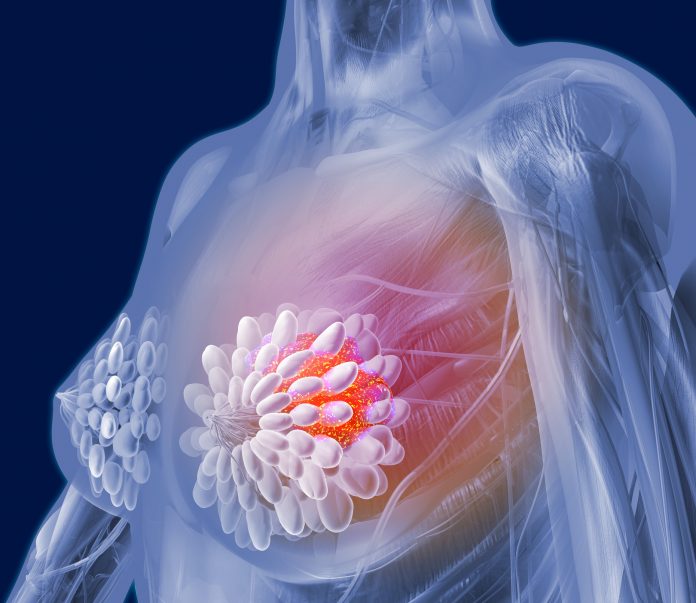
The first pharmacogenomic marker for response to anthracyclines and HER2-targeting drugs has been identified by researchers from Roswell Park Comprehensive Cancer Center and Kaiser Permanente Northern California. These are two commonly used breast cancer chemotherapies, and if the results are confirmed this finding could lead to a biomarker that will help guide in prescribing them.
The results of this large genetic analysis were published in NPJ Breast Cancer.
A locus in the UACA gene, a key regulator of tumor suppressor Par-4, was associated with overall survival in patients taking Par-4 dependent chemotherapies, including anthracyclines and anti-HER2 therapy, at a genome-wide significance level. This association was confirmed through a meta-analysis across four independent prospective breast cancer cohorts.
“Hundreds of genetic variants have been linked to breast cancer risk, but very few have been robustly linked with outcomes,” said Qianqian Zhu, Associate Professor of Oncology in the Department of Biostatistics and Bioinformatics and Co-Director of the Biostatistics and Statistical Genomics Resource at Roswell Park. Zhu is lead author of the study.
In fact, more than 300 independent breast cancer risk variants have passed genome-wide significance over the last decade. In contrast, only 11 GWAS published to date have found genetic variants associated with breast cancer prognosis, with only four loci reaching or approaching genome-wide significance. But there is strong evidence of a genetic influence on breast cancer prognosis.
These researchers tried to replicate findings from prior studies with no luck, Zhu told Inside Precision Medicine. Instead, “Our study uncovered a gene that strongly associates with a patient’s outcome after treatment with anthracyclines and anti-HER2 therapy, which may help oncologists formulate appropriate treatment strategies for patients with breast cancer based on their genetic makeup,” she said.
Zhu and her colleagues analyzed the DNA of 3,973 breast cancer patients from the Pathways Study, a large, multiethnic study of women undergoing treatment for breast cancer at Kaiser Permanente Northern California.
In collaboration with the Kaiser Permanente Division of Research, Zhu and her colleagues at Roswell evaluated millions of genetic variants for their association with breast cancer outcomes and their results pointed to the UACA gene.
“The opportunity to examine genetic factors with detailed treatment information can result in new information that may have clinical implications,” said Lawrence Kushi, a Senior Research Scientist at the Division of Research who leads the Pathways Study and is senior author of the paper.
To test the strength of their discovery, the researchers conducted genetic analyses in three additional independent cohorts of women with breast cancer and confirmed the association.
The identified genetic variants are common in the general population, and consistent associations were observed across patients from diverse populations. If further replicated in other studies of breast cancer, the researchers say, these findings will make it possible to design a genetic test that will enable clinicians to personalize treatment plans by determining which patients will best respond to anthracycline or anti-HER2 therapy before treatment begins. The findings also highlight the potential of targeting both the UACA gene and the Par-4 pathway as new approaches to improving outcomes of patients with breast cancer.
“We are trying to explore this further, and better understand the pathway and how this interacts with the treatments,” Kushi told Inside Precision Oncology.
But just having this lead could be a key step forward.
“It is amazing that we started with an agnostic search across the genome for genetic markers associated with breast cancer outcomes and identified UACA as a promising gene predictive of treatment outcomes for two commonly used agents for breast cancer,” said Song Yao, joint corresponding author of the study, Professor of Oncology and Director of Molecular Epidemiology at Roswell Park.













